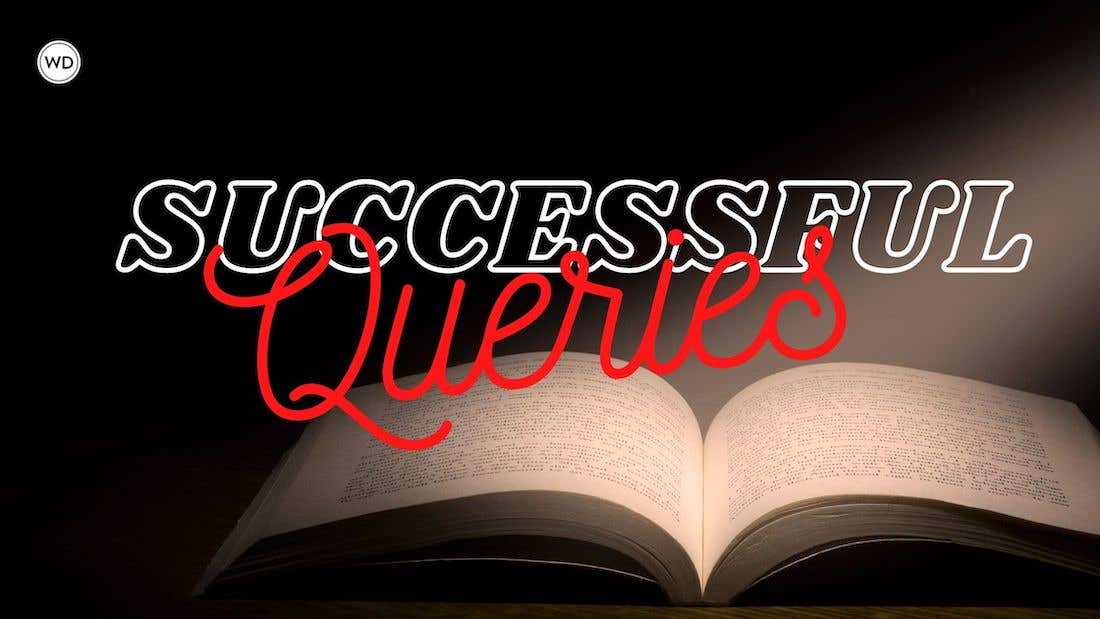Successful Queries: Agent Lisa Bankoff and “If You Follow Me”
This new series is called “Successful Queries” and I’m posting actual query letters that succeeded in getting writers signed with agents. In addition to posting the actual query letter, we will also get to hear thoughts from the agent as to why the letter worked. The 30th installment in this series is with agent Lisa Bankoff (ICM) and her author, Malena Watrous, for the literary novel, If You Follow Me (March 2010, HarperCollins).
This new series is called "Successful Queries" and I'm posting actual query letters that succeeded in getting writers signed with agents. In addition to posting the actual query letter, we will also get to hear thoughts from the agent as to why the letter worked.
The 30th installment in this series is with agent Lisa Bankoff (ICM) and her author, Malena Watrous, for the literary novel, If You Follow Me (March 2010, HarperCollins).
Dear Ms. Bankoff,
After graduating from Barnard College in 1997, I worked as a freelance journalist in New York before moving to rural Japan, where I taught English and wrote articles for Salon.com, among other publications. I spent my first year there in a tiny nuclear power town called Shika, which was quite a change from Manhattan. Inspired by my own experiences, my debut novel, Repeat After Me, is the story of a young American woman who moves to rural Japan not long after her father's suicide.
The book is structured in four sections, each occupying a different season, in keeping with the Japanese tradition of honoring the seasons in art and writing. It opens with a letter to "Miss Marina" from her Japanese supervisor, a man named Hiroshi Miyoshi, informing her of her latest "gomi" (garbage) errors. Every time she throws her trash away, an old man from the neighborhood shows up at her door with whatever items she put in the wrong bins. She has no privacy, which is an issue since she's living in secret with a girlfriend. Although each section of the novel focuses on a different problem and introduces new characters in the narrator's life, garbage remains a central motif throughout the book as she comes to realize that in Japan, you can never really throw anything away. For a young woman who fled to another country to try and outpace her grief, this comes to have a profound meaning. The novel is a dark comedy of manners and ultimately a strange kind of love story. It has a similar sensibility to Elizabeth Gilbert's Eat, Pray, Love, and shares the cross-cultural humor of David Sedaris's Me Talk Pretty One Day.
I am a graduate of the Iowa Writers' Workshop and a recent Wallace Stegner Fellow at Stanford, where I am currently a Jones Lecturer in fiction writing. An earlier draft of this novel received a Michener/Copernicus award in 2006/7. My short fiction has been published in Story Quarterly, Triquarterly, The Massachusetts Review, Glimmertrain and Kyoto Journal. I also write nonfiction articles and monthly book reviews for the San Francisco Chronicle. I have received two Pushcart nominations for short stories and second place in the Pen/Faulkner novella contest (for an earlier version of the first section of this novel).
If you would be interested in reading part of my novel, please let me know. I appreciate your time and consideration.
Sincerely,
Malena Watrous
Commentary from Lisa
Malena's novel is about a character who moves to Japan to teach English. My son studied Japanese, spent a summer in Japan as an exchange student, and harbors a desire to return after college graduation to
teach English. On this basis alone, I was primed to want to read Malena's novel. In the first paragraph, she shows the themes of the story: fish out of water, culture clash, immersion in the unfamiliar. These are reasons to keep reading.
In my apartment building with its common recycling area, I'm always finding glass in the paper bin and vice versa, so I could understand the old man's motivation mentioned in the second paragraph. As the pitch continues, the line "you can never throw anything away" struck me. Is this an intriguing commentary about a society—or is it metaphor? I wanted to know.
She nails it with the line about how her book is "a dark comedy of manners and ultimately a strange kind of love story"—promising some of my favorite literary ingredients. Finally, her credentials are the real deal. She has this story in her blood and is determined as well as clearly talented.
Chuck Sambuchino is a former editor with the Writer's Digest writing community and author of several books, including How to Survive a Garden Gnome Attack and Create Your Writer Platform.





